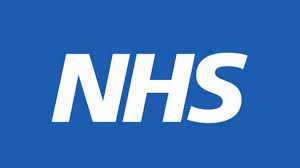Risks
- 11 Dec 2023
- 1 Minute to read
- Print
- PDF
Risks
- Updated on 11 Dec 2023
- 1 Minute to read
- Print
- PDF
Article summary
Did you find this summary helpful?
Thank you for your feedback
- Vaginal oestrogen preparations, when prescribed at licensed doses, represent safe treatment options.
- NICE says when discussing the option of vaginal oestrogen with a person with troublesome genitourinary menopause symptoms, explain that serious adverse effects are very rare. If a person chooses to start vaginal oestrogen, they should however report vaginal bleeding to their clinician.
- The large observational Women’s Health Initiative study, which included 45,663 women, showed no increase in risk of stroke, invasive breast cancer, colorectal cancer, endometrial cancer, pulmonary embolism or deep vein thrombosis with licensed doses of vaginal oestrogen.
- With long-term use, licensed doses of vaginal oestrogen are not associated with significant systemic absorption.
- There may be minimal and transient systemic absorption at the start of treatment, when the vaginal epithelium is at its thinnest, which then falls as the vaginal mucosa thickens during maintenance treatment.
- The total administered dose per year of a preparation containing 10mcg of estradiol used twice-weekly is similar to one single daily dose of 1mg estradiol oral therapy.
- NICE says some oestrogen is absorbed, but compared with systemic HRT, the amount is small.
Note:
Of note, although there is no evidence of an increased risk of endometrial cancer with licensed doses of vaginal oestrogen, clinical data beyond 1 year is lacking.
References and Further Information:
- Hirschberg A, Bitzer J, Cano A et al. Topical estrogens and non-hormonal preparations for post-menopausal vulvovaginal atrophy: an EMAS clinical guideline. Maturitas. 2021.
- Santen R, Mirkin S, Bernick B et al. Systemic estradiol levels with low-dose vaginal estrogens, Menopause. 2020.
- Crandall C, Hovey K, Andrews C et al. Breast cancer, endometrial cancer, and cardiovascular events in participants who used vaginal estrogen in the Women's Health Initiative Observational Study. Menopause. 2018..
- National Institute for Health and Care Excellence. Guideline. Menopause (update). Draft for consultation, Nov 2023.
Was this article helpful?

